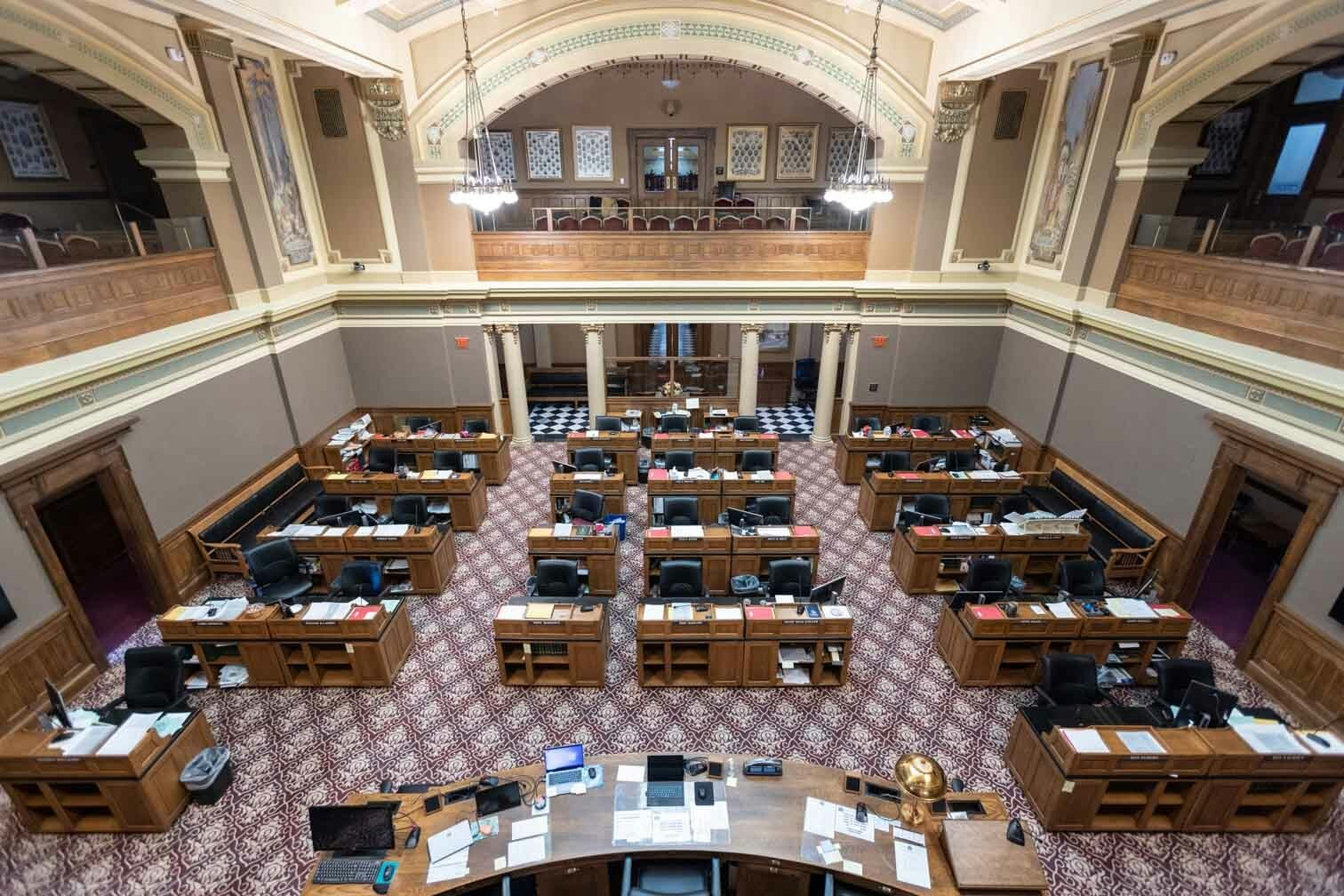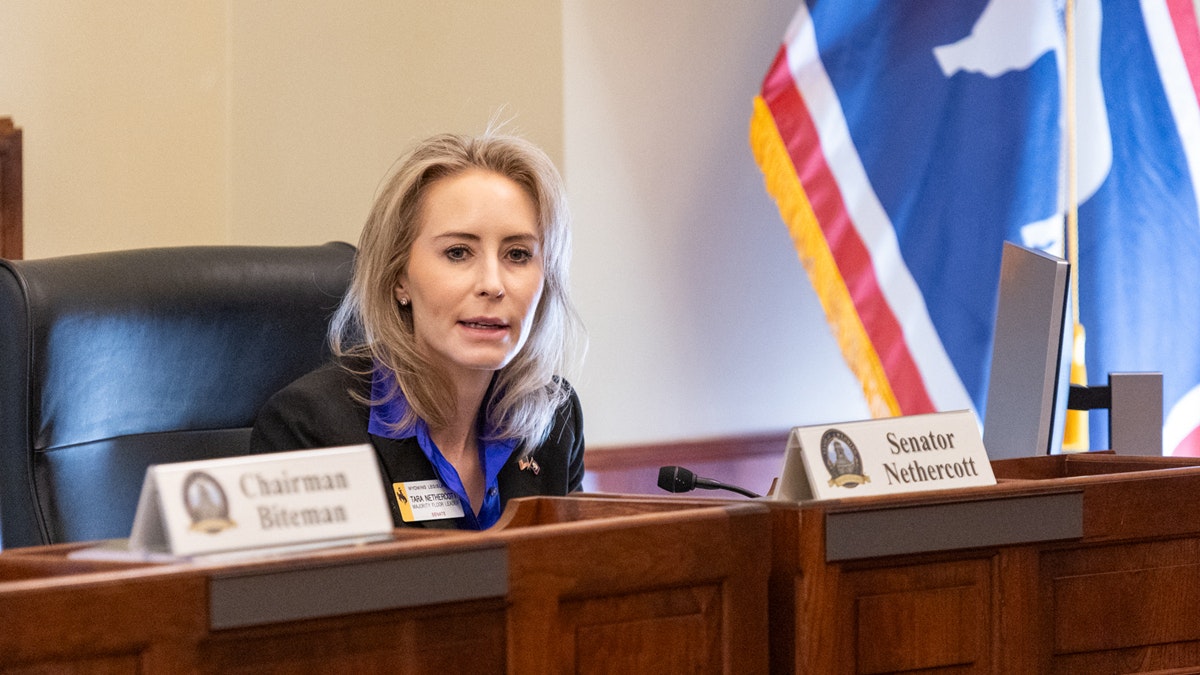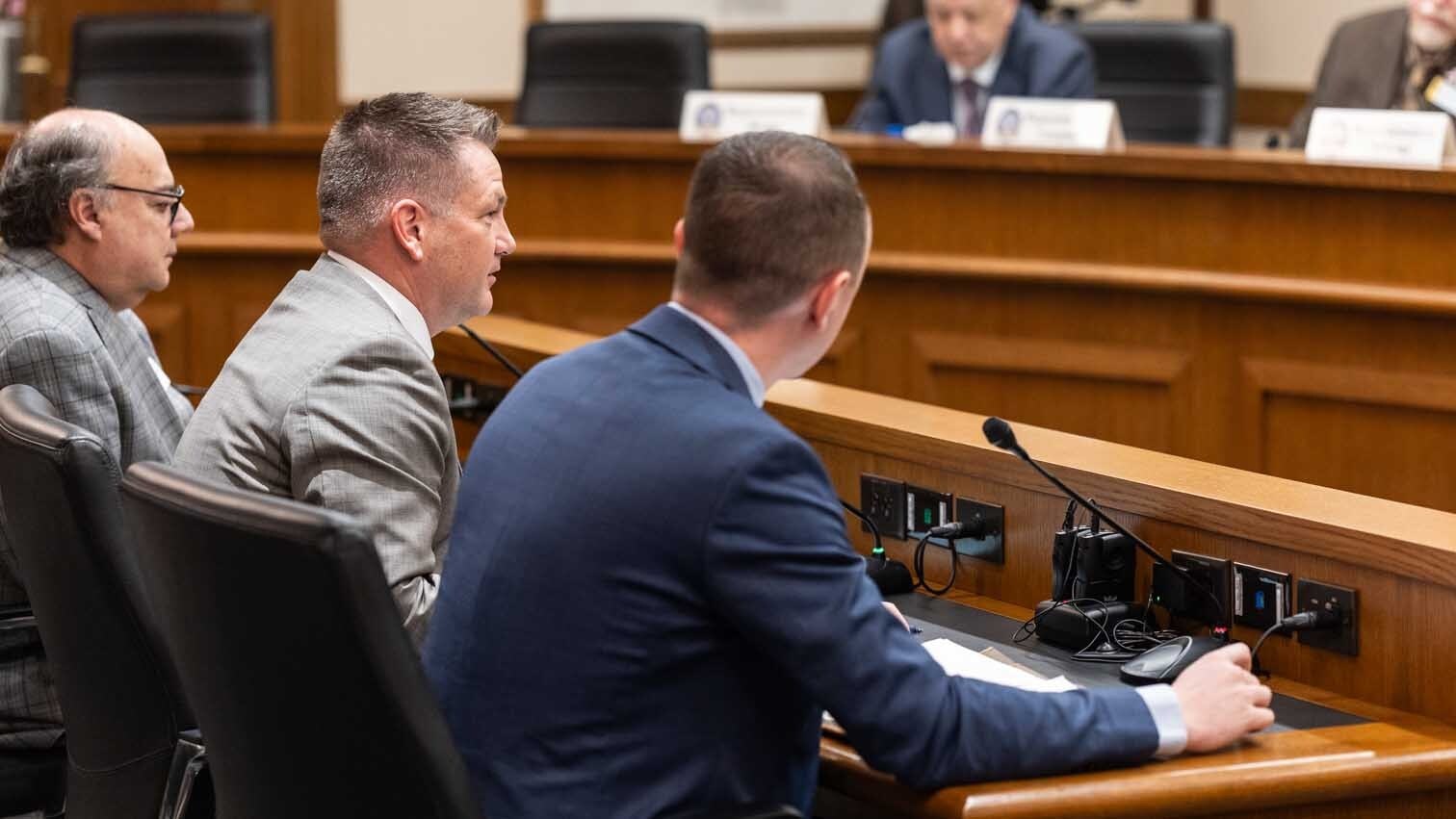The 67th Legislature is more than halfway through its 40-day session and state senators found themselves with a rare mid-session weekday off Friday.
State Sen. Charles Scott, R-Casper, credited the extra day away from committee meetings and floor debate to the Senate being so far ahead of the state House in plowing through proposed legislation.
“They are new, what do you expect?” he said with a laugh about a large number of first-year House members.
He also gave credit to Senate Majority Floor Leader Sen. Larry Hicks, R-Baggs, for his work managing the flow of bills.
“Senator Hicks did a good job expediting the process,” Scott said.
Even so, a few senators could still be found at the Capitol in Cheyenne on Friday hammering out details of the supplemental budget.
Scott, the most senior legislator with 44 years in the Legislature, said this was the first time in his tenure that the Senate took a full day off during a general session.
Typically, Scott said, the House moves more bills to the Senate for consideration, but this year it was the opposite with the Senate offering 18 more bills than its counterpart despite boasting half as many members.
Whether the Senate being ahead was because of a lack of efficiency on the part of the House or incredible efficiency by the Senate is a question that brings mixed opinions.
Both Senate President Ogden Driskill, R-Devils Tower, and House Speaker Albert Sommers, R-Pinedale, believe the session has been moving smoothly.
“The Senate has really gelled well together, they run well,” Driskill said.
By The Numbers
In 2021, the House gave the Senate 122 bills to consider. This year, there were 121.
“So, we’re almost identical on the same number of bills,” Sommers said.
Also in 2021, there were 108 Senate bills that passed over to the House, while this year there were considerably more, 139.
There were 48 bills that passed through a committee but were not allowed to be heard for discussion by House Majority Floor Leader Rep. Chip Neiman, R-Hulett. There were 23 bills that received the same treatment during the last general session in 2021.
But it also should be noted that fewer bills were referred to committees in 2021 by former House Speaker Eric Barlow, R-Gillette, who is now in the Senate.
That year, 54 bills were not referred to a committee, while this year that number is 22. A bill must advance out of committee before it can be discussed on a chamber floor.
Barlow brought more bills to an early death than Sommers has, but some may argue that a bill advancing out of a committee gives it legitimacy and a right to be heard on the floor, which is Neiman’s call.
“I’m sure there are bills that I killed in my drawer because I didn’t like the policy and I’m sure there are bills the majority floor leader probably killed in his drawer because he didn’t like the policy,” Sommers said. “Try to not do much of that, or at least I try not to do much of that. That’s why you have committees, that’s why you have process.”
Nearly 500 Bills
Exactly 300 bills and joint resolutions were crafted in the House this year compared to 280 in the last general session in 2021. The Senate drafted 197 bills compared to the 161 in 2021.
“I don’t think anyone knows how to put their finger on what’s happened,” Driskill said of the Senate moving through its workload quickly this year. “Our debates are robust, we’ve killed a number of bills, we have the debates, but they’re moving files efficiently.”
Driskill said there has been grumbling about how many bills he sent to certain committees.
Scott said the Senate is always a little faster-paced as it has half the members. Further, every member of the
Senate has his or her own microphone, while in the House, members have to walk up to one of four lecterns to speak from. They can speak up to two times on each bill.
“When you hear somebody make the same point you were going to make, you’re less inclined to talk when the microphone is at your desk than if you had already got up and walked over to speak,” Scott explained.
New Faces
Massive turnover in the House with 27 freshman members also can create a distinct learning curve.
“A lot of it is we have a lot of new people, and they talked a lot,” Sommers said. “There’s no real way to cap that. You can say whatever you want, but until they see the result of that, I think they start to learn and become more seasoned on how often they go up and speak.”
But Driskill said the desire to speak is a natural inclination of freshman legislators looking to separate themselves from the rest of the body.
“In the House … it’s a lot tougher role to get yourself to stand out than it is in the Senate,” he said.
But Scott said as those freshmen enter the second year of their terms and beyond, they learn to manage their time more effectively.
“It’s just part of the process,” he said.
This is much less the case in the Senate, where there are only five new members, two of whom moved over from the House. Driskill said the senators who caused problems in the past have been on good behavior this year.
“They’re finding out they can actually be effective in moving some policy,” Driskill said. “They feel like they’re a part of it for the first time.”
Positive Outlook
With the session just more than halfway done and about three weeks remaining, a clearer picture has emerged as to what the highlights of the 2023 session will be and how the session may come to a close.
Now that all the bills being considered in the Senate and House are from the other chamber, Sommers believes a different juncture in the session has started, defined by a slower pace and perhaps more attention to detail.
“There’s less bills, we’re not looking at our immediate colleagues’ bills, there’s an opportunity to have more scrutiny of bills,” he said. “More time to amend those.”
Driskill said the Senate only has 45-50 House bills left for consideration. If it is productive next week, the Senate could have a light load for the rest of the session.
When giving his final words to the Senate on Thursday afternoon, Driskill made it clear to members they had earned their day off.
“This isn’t about taking days off, this is about workload and workflow,” Driskill said Friday morning.
Some Sparks
Sommers said relationship building during the 2023 session has been “a mixed bag.” Although there have not been any major kerfuffles, a few moments of contention have arisen.
On Thursday, Rep. Jeanette Ward, R-Casper, was met with vocal derision from many legislators when she brought up a national organization that she said has espoused pro-transexual views while discussing a proposed state-level Psychology Interjurisdictional Compact.
“The lid kind of bubbles at times, but we’ve never really blown up on the floor yet,” Sommers said. “As long as we keep that civility we can maintain relationships. They may be strained, I think they are right now.”
Smooth Sailing Ahead?
Both Driskill and Sommers don’t expect much drama when it comes to reconciling their supplemental budget bills, a topic that has historically sometimes brought strategic amendments and long arguments.
The proposed budgets from each chamber call for significant deposits into the state’s savings. The largest differences involve which accounts savings will be put. The Senate put no money in reserves but much more into the Permanent Mineral Trust Fund, a permanent savings account.
“We’re not probably going to have a wild, contentious (debate) on the budget bill or Capcon (Capital Construction),” Driskill said. “We positioned ourselves together this year.”
Sommers believes the House is on schedule and said probably could have taken the whole day off Friday as well.
He said if the Senate takes next Friday off, the House will too as a way to save a day to use if needed at the end of the session.
“It makes no sense for us to sit there with no work in front of us,” Driskill told Sommers during a Friday press call. “The flip side of it is, I’m not very happy if you’re killing my members’ files because you took a day off because we took one off.”
If the rest of the session goes smoothly, Driskill believes it will set a strong stage for the 2024 budget session. Budget sessions tend to be a bit more intensive and the next expected to be especially so with the last remaining American Rescue Plan Act money to dole out.
Editor’s note: For the most comprehensive and extensive coverage of the 2023 Wyoming Legislature, visit CowboyStateDaily.com to read more than 200 legislative-related stories CSD reporters have filed so far this session.





